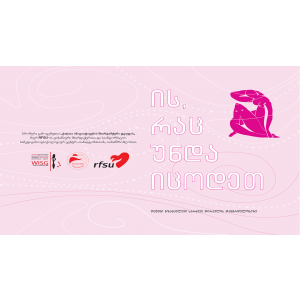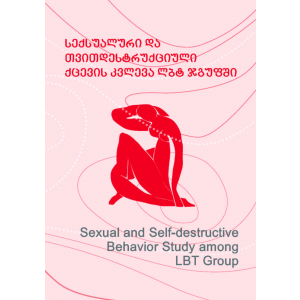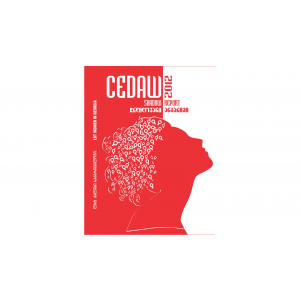The following document presents statistics and analysis of the cases, group and individual consultations and documented hate crimes made by the organization during the reporting period of 1st of January -30th of November year 2016. In the document, there are collected cases which lawyers of WISG worked on, with the special bodies of Ministry of Internal Affairs, different administrative bodies, Courts, Public Defender of Georgia and the Office of the Personal Data Protection Officer.
Following report analyses problems of the identification and inadequate responses from the side of the State regarding cases of the violence against women and gender-based violence. The report is based on the cases that organization has worked on in the reporting period. This includes the investigation of the cases of hate crimes committed against LGBTI persons, an inadequate response to the cases of discrimination against women and LGBTI persons, violation of the right of the inviolability of the private life, legal gender recognition of transgender people and other issues.
Forms of violence against women, such as physical and psychological violence in family, femicide, early marriage, rape and female genital mutilation, are especially common in the marginalized groups. Women belonging to the groups such as: persons with disabilities, IDPs, religious or ethnic minorities, commercial sex-workers and etc. are victims of the double discrimination. These cases and their specifics remain invisible and unknown for the state and broader society.
The critically large scale of gender-based violence demonstrates that LGBTI persons are nowadays one of the most discriminated group. “Lesbian, bisexual and transgender (“LBT”) women experience gender-based violence both - on account of their gender and because of the way their sexual orientation or gender identity challenges patriarchal concepts of gender and gender roles”. 1For the government, most of the forms of gender-based violence remain invisible. The State often does not recognize rights of LGBTI persons and often is in a role of oppressor itself, which is demonstrated through lack of the political will to implement required legislative changes and openly discriminative statements from the side of officials.
The report can be found and downloaded at the following link: Unidentified Violence – Litigation Report.




-page-001.jpg)


